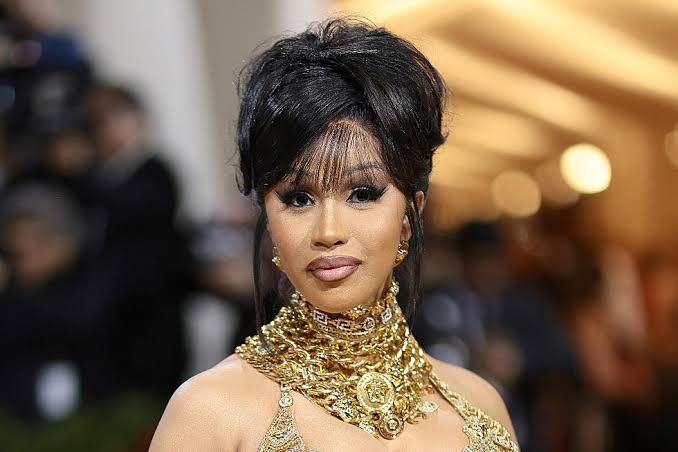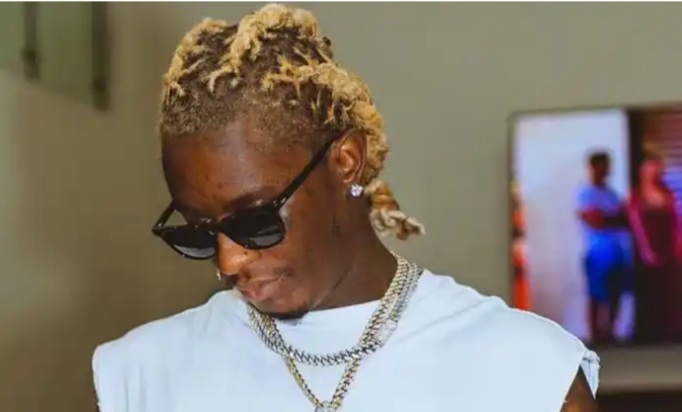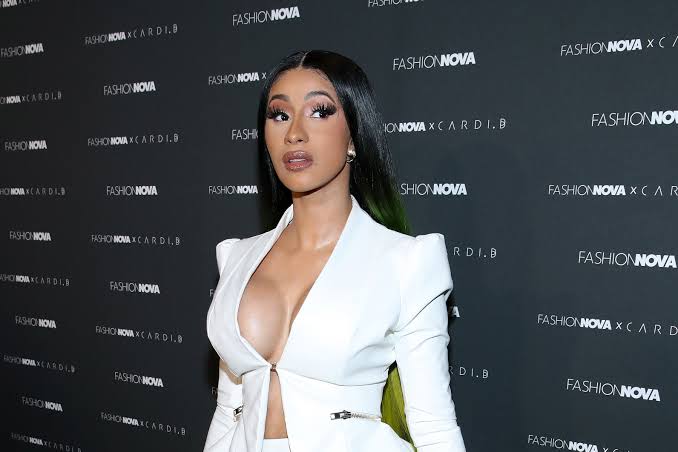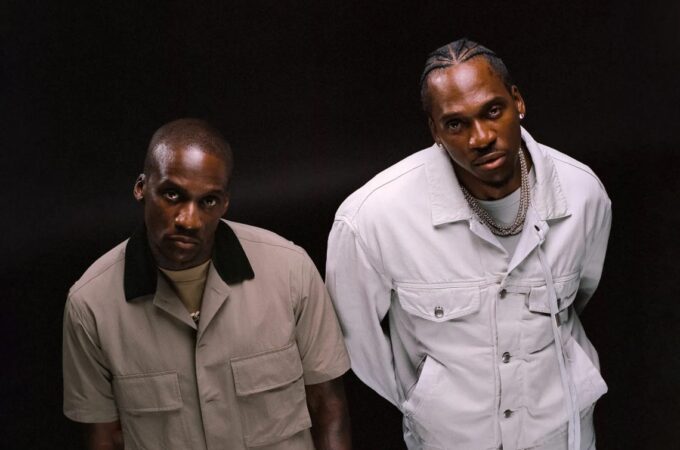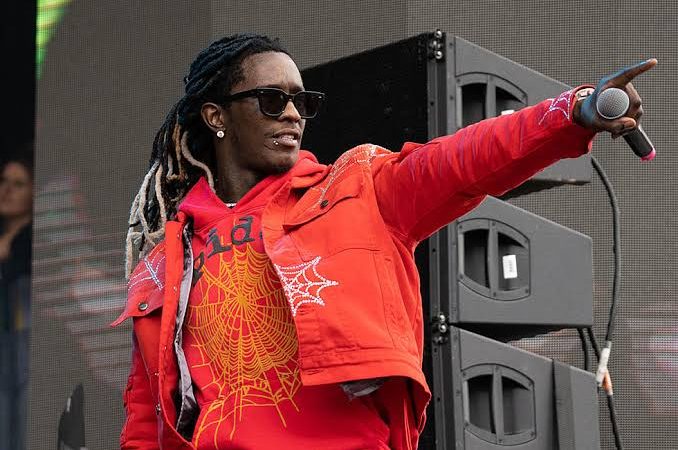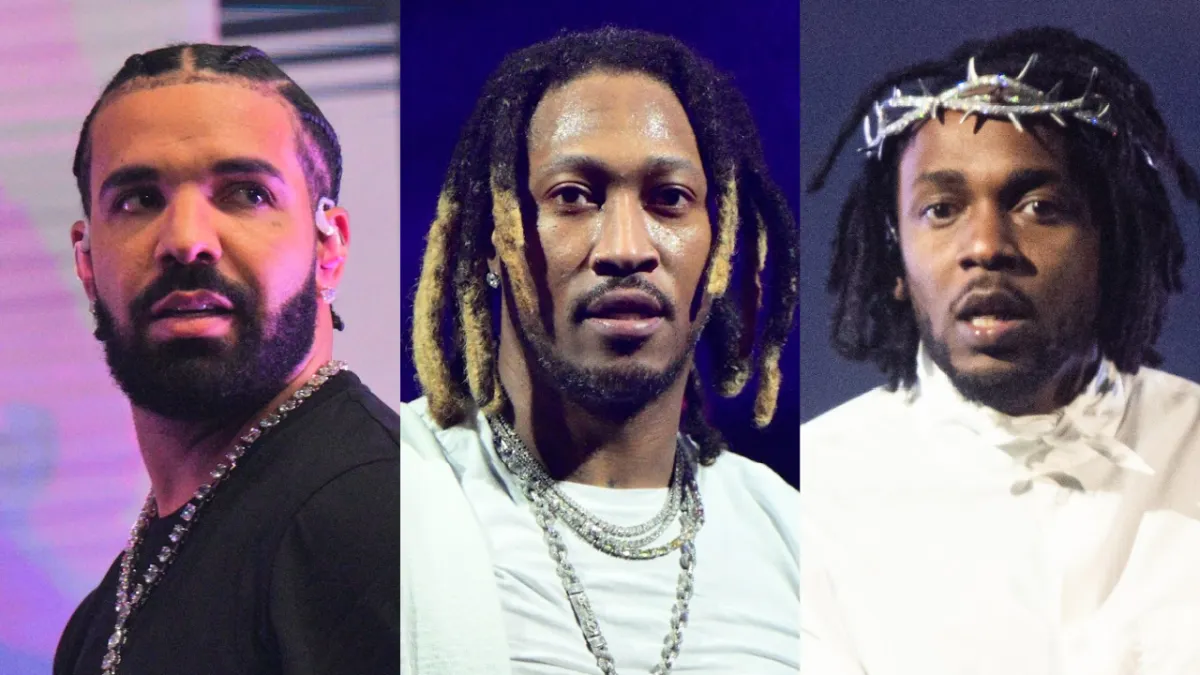
Future Breaks Silence on Drake and Kendrick Lamar Feud While Metro Boomin Reflects on Fallout
Future has finally shared his perspective on the long-running feud between Drake and Kendrick Lamar, addressing the tension with both a mix of humor and candid reflection. The Atlanta rap icon, known for his laid-back demeanor and legendary catalog, opened up during a GQ interview alongside Metro Boomin. Though initially lighthearted, Future’s comments revealed deeper thoughts about his place in the hip-hop hierarchy and the dynamics between some of the industry’s most prominent figures.
Future’s Initial Reaction: Humor and Deflection
When asked about the Drake-Kendrick feud, Future initially seemed oblivious, responding, “There was a beef? I didn’t even know there was a beef. I didn’t know they had nothing going on. I ain’t never participated in rap battles, man.” His nonchalant reply, paired with a sly grin described by the interviewer as an “impish smirk,” suggested that Future was deflecting or perhaps downplaying the situation.
Future has long been a figure who stays above the fray of public disputes, opting instead to focus on his music and brand. His relaxed approach to the subject fit his persona but also left fans curious about his true feelings on the matter.
Addressing Kendrick Lamar’s Controversial Line
Switching to a more serious tone, Future admitted he was still perplexed by the fallout from Kendrick Lamar’s infamous line on “Like That,” where he rapped, “Muthafuck the Big Three, n-gga, it’s just Big Me.” The lyric, widely interpreted as a jab at the concept of the “Big Three” in rap—Drake, Kendrick, and J. Cole—sparked responses from both Drake and Cole. Yet, for Future, the line carried a different implication: it overlooked his contributions and status in the game.
“I’m supposed to be the one who gets mad; I’m still confused about that,” Future confessed. “Nobody cares what I think. That’s what was so messed up about the whole thing. To the point where I’m so player that I didn’t even say anything about how I felt.”
Future’s frustration lay in the fact that he felt sidelined in a conversation where he believed he belonged. As an artist with countless hits, groundbreaking albums, and a cultural influence rivaling that of the “Big Three,” Future saw himself as an integral figure in the conversation about rap’s elite. “Why is everybody mad when he was talking about me on my song?” he asked, highlighting his bemusement at the controversy.
Staying Neutral Amid the Feud
Despite his personal feelings, Future made it clear he held no grudges against Kendrick, Drake, or J. Cole. “Who I’m not cool with? I ain’t got nothing to be mad about,” he stated. “Find something I should be mad at them about, then I guess I’ll get mad.” His words reflected his desire to stay out of the conflict and focus on his own path.
Future’s ability to remain neutral is a testament to his maturity and focus. Rather than getting entangled in public disputes, he prioritizes his music and legacy, ensuring his energy is spent on creating rather than competing.
Metro Boomin Weighs In
Metro Boomin, who joined Future for the interview, also shared his perspective on tensions in the industry, particularly his own falling-out with Drake. While he clarified that their issues weren’t over a woman, he admitted the personal conflict deeply affected him. “It was a personal issue that really hurt me and disappointed me,” Metro explained.
Metro likened the situation to a typical friendship fallout, noting that such disagreements happen all the time but are amplified when public figures are involved. “If you take all the rap entertainment out of it, it’s like, have you ever been real cool with somebody, and y’all fell out over something? It happens every day,” he said.
The producer expressed regret over his social media outburst directed at Drake following the release of diss tracks “Push Ups” and “Family Matters.” In those moments, Metro accused Drake of spreading lies and even called him a “colonizer,” a remark that added fuel to the fire. Reflecting on his actions, Metro admitted, “I should have been stronger than that. That was out of character for me.”
Dismissing Conspiracy Theories
Both Future and Metro dismissed the notion that their albums We Don’t Trust You and We Still Don’t Trust You were coordinated attacks against Drake. Rumors had swirled that the projects were deliberate attempts to antagonize the OVO boss, given the numerous subliminal shots at him throughout the records.
“People really think we sat for two years, making two albums to be like, ‘Yo, fuck this dude,’” Metro said. “What kind of shit is that? You really think we are going to spend that much time, effort, and resources on just trying to get at somebody on an album? Blowing budgets on two albums—going over budget? That’s some serious hate.”
Metro’s clarification emphasized that the albums were artistic endeavors, not personal vendettas. His remarks shed light on the creative process behind the music and debunked the idea that he and Future had orchestrated an elaborate campaign against Drake.
Future’s Legacy and the Bigger Picture
While the interview centered on the Drake-Kendrick feud and associated dramas, it also underscored Future’s perspective on his legacy. For an artist who has consistently pushed boundaries in hip-hop, the idea of being left out of the “Big Three” narrative seemed both surprising and disappointing to him.
Future’s ability to maintain a cool demeanor and focus on his craft is a hallmark of his character. His comments about the feud revealed not only his self-confidence but also his awareness of the broader dynamics in the music industry. By choosing not to engage in petty disputes, Future solidifies his reputation as an artist who values his artistry over unnecessary drama.
The Complexity of Rap Feuds
The Drake-Kendrick feud, like many in hip-hop, highlights the complex relationships between artists in the industry. While public rivalries often dominate headlines, they are rarely as straightforward as they seem. Behind the scenes, personal relationships, business interests, and artistic egos all play a role in shaping these conflicts.
Future’s candid remarks provided a glimpse into the nuanced realities of these feuds. His ability to remain neutral while asserting his place in the conversation reflects a level of maturity that is often overlooked in discussions about rap beefs. Meanwhile, Metro Boomin’s vulnerability and willingness to admit his mistakes further humanized the often-sensationalized world of hip-hop rivalries.
A Focus on Music
At the end of the day, Future and Metro Boomin’s comments served as a reminder that music should remain the focal point. For all the drama and speculation, both artists emphasized their commitment to creating meaningful work. Future’s decision to avoid taking sides and Metro’s acknowledgment of his missteps highlighted the importance of growth and self-awareness in an industry often driven by competition.
As the rap community continues to evolve, the stories of artists like Future and Metro Boomin serve as valuable lessons in resilience and perspective. Whether navigating personal conflicts or industry dynamics, their focus on music above all else is a testament to their dedication to their craft.

